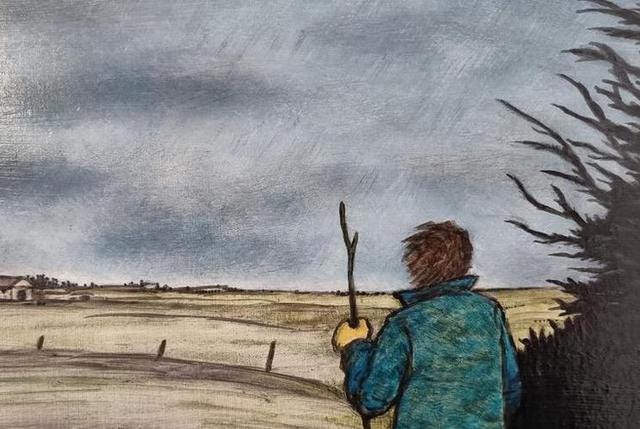This one is a bit funny.
I ended up here by accident. But it’s technically true, this week I had a poem published in the New Zealand poetry journal, Blackmail Press, and I did it without writing a single poem. Kind of.
See, poetry has never been an easy sell for me. Growing up it wasn’t packaged for me in a way that sold it as something to be enjoyed for its own sake. It was either taught from an “educational” standpoint or used as a high brow signaller of status, “Oh I just adore T.S Elliot.”
Maybe, or maybe you want to look like you adore T.S Elliot.
Maybe I’m just cynical.
Anyway, I’m not so pig headed to think there’s no value to be taken from a whole subsection of the literary sphere, so for a while now I’ve been dipping my toes here and there trying to get past my initial aversion to poems.
There was a phase back in 2020 where I would stretch for thirty minutes or so after every my gym session and I’d throw on a new poem from one of David Whyte’s collections for the duration of those stretches.
First of all, the guy has one of those David Attenborough style voices—a blend of authority, ease and something you can’t quite put your finger on. His poetry paired particularly well with the slow, calm-yet-painful process of stretching. Bit by bit via the David Whyte gateway drug I expanded my poet pool and started hearing poetry from an angle I’d never encountered it before. No doubt thanks in no small part to the endorphins born from exercise and stretching I started to enjoy for its own sake. Within limits.
More recently, I’ve taken a very measured1 approach to reading the odd “great” poem and paying attention to how it makes me feel. I’d love to say my eyes have been opened, but it’s only when I’m in a very specific mood and I’m reading the right style of poetry that I will be struck with anything beyond a technical interest. But in saying that, with the help of poem guides like this one to aid my understanding of what most of these pieces are about, I’m increasingly finding that I’m able to read each piece in a way that at least positions me correctly to draw out these organic reactions as rarely as they come.
But in all honesty if I stripped away all the context, the framing, the entry points, the vested interest in internalising rhyme sequences and cadences for the sake of my own literary style, and looked at poetry from a wholly organic place—the only form of poetic language that spoke to me right out of the box were song lyrics.
With the right wording, the right delivery, I don’t need a crumb of set up to appreciate a good lyric. Like a well timed joke or a biting insult, in lyric form words have an involuntary effect on me. To me that’s the purist form.
Which circles us back to my own poem.
Late last year I wrote a second novel. One of the characters in that novel is an aspiring folk singer from a rural New Zealand town. I wrote lyrics to one of these folk songs as part of that plot. Since I’ve been trying to get more traction on the publishing front lately and build a bit of a body of work, I sent these lyrics out to various poetry journals as a free standing poem.
The funny thing about this particular song or poem is that it’s deliberately written to be a bit preachy. The character thinks he’s got a more enlightened worldview than his small town peers and is insisting that they “must” take notice of world events. He’s scorning these parochial hicks for assuming that by living in isolated New Zealand, they are sheltered from international politics and don’t have to worry about growing tensions on the world stage. In the song he (rather dramatically) imagines World War III reaching New Zealand’s shores and holding the horrors that follow under the noses of all those who ignored the early signs.
Anyway, that’s probably more context than you need for a six paragraph bit of writing.
In any case I’m a poet now—with heavy caveats. My character is a poet and I’ve passed off his work as my own.
You can read that poem here at Blackmail Press issue 46.
Measured because it’s hard to undo a first impression of a thing. In my experience too much can be too much and create more negative framing that I’ll only have to undo in the future.





